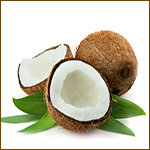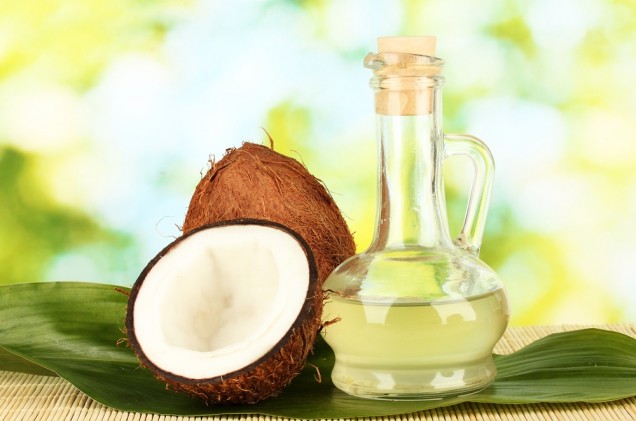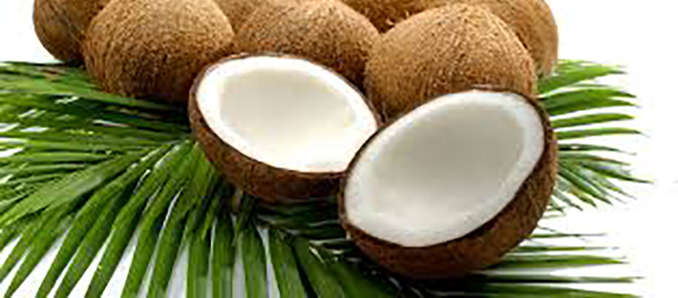 There’s a good reason why a coconut has long become extremely popular. It offers many health benefits and can be used in a million different ways: you can eat it, rub into the body and hair, and even use it to treat certain skin conditions.
There’s a good reason why a coconut has long become extremely popular. It offers many health benefits and can be used in a million different ways: you can eat it, rub into the body and hair, and even use it to treat certain skin conditions.
We know you’ve heard of the coconut oil which can be applied as a moisturizer, used as a hair conditioner, or as a skincare product. And don’t forget about the famous coconut oil body wrap for weight loss, which may come in handy when you are trying to lose a few extra pounds. And, surprisingly or not, the benefits of coconuts don’t just end there.

Coconuts are generally praised for their various benefits for health, however, sometimes these benefits are hotly debated in the medical community. This article offers an up-close look at both the benefits and potential risks of this fruit.
What’s so great about coconut?
Great source of fiber
So much has already been said about the perks of dietary fiber. It regulates bowel movement and keeps cholesterol and blood sugar levels under control. And as much as 190 grams of shredded coconut covers 50% of your daily fiber intake.
Reduces the risk of diabetes
The fiber contained in a coconut keeps the release of glucose under control which slows down the spike of blood sugar levels in people with type 2 diabetes. It may also benefit gut health and help prevent different bowel disorders which, in turn, promotes the absorption of important nutrients.
Slows down aging processes
Cytokinins, kinetin and trans-zeatin found in coconuts possess anti-cancer and anti-aging qualities that may reverse aging in human cells and reinforce the immune system. To dwell some more on that, it:
Strengthens immunity
Coconut alone can’t do wonders for the immune system, but as part of a healthy diet, it can help the body build resistance to viruses, bad bacteria, fungi, and parasites. As well as it can treat the ailments caused by some or all of the above. All because it contains lauric acid which can also be found in breast milk.
Keeps you hydrated
The fruit is loaded in electrolytes that provide the necessary hydration and proved to be particularly useful during workouts. Some fitness enthusiasts choose coconut water saying it’s tastier and more refreshing than regular water.
Boosts weight loss
Coconuts may, in fact, promote the slimming-down process. All thanks to the fatty acids they contain which speed up metabolism. However, the supporters of this theory have been back and forth about it, since there’s still not enough evidence to support this belief.
Topical uses for coconuts
- Food
First and foremost, they are popular superfoods with endless nutritional value. Coconut flesh is a great source of fiber, various minerals, and potassium. Also, it’s free of gluten and cholesterol.
- Milk and water
The liquid contained inside this fruit is largely available in the form of coconut water or coconut milk. Both can be rather expensive. All because it’s a real pickle to extract the juice from a coconut. Coconut milk is cholesterol- and sodium-free, unlike regular milk, and these are good enough reasons to swap dairy for its healthier alternatives which are not limited to coconut. As for coconut water, it is surprisingly filling, and yet contains far less sugar and calories than many juice beverages.
- Oil
The many uses of coconut oil go way beyond our short list. It is most recommended to use it for:
- Cooking
- Treatment of dermatological conditions
- Moisturizing your skin and lips
- Strengthening hair follicles
- Reducing overall inflammation in the body
- Boosting bone health
- Making natural cosmetics
- Protecting skin from UV rays
Potential downsides of a coconut
Despite of having indisputable benefits, some scientists argue that coconut oil contains unhealthy saturated fats that are as bad as those found in beef tallow and may put us at a higher risk for heart disease. However, the research also shows that the consumption of coconut flesh and the juice squeezed from it, e.g. like milk and water, does not have the same adverse effects on the heart.
Also, medical experts warn that coconuts are far from being a cure-it-all solution when it comes to dealing with serious ailments, like diabetes or arthritis. Its antibacterial and anti-inflammatory properties can play a part in alleviating certain symptoms but cannot substitute either a visit to a healthcare professional or proper treatment.








